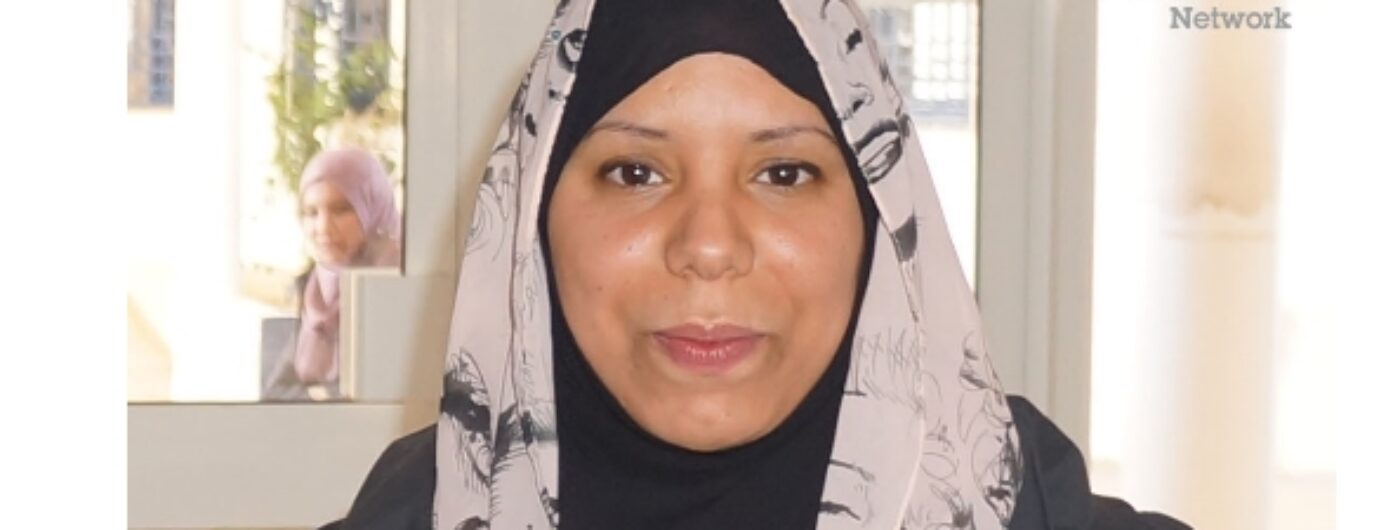
UfM interviews Ms. Salma Mustapha
UfM: What is your professional background?
Salma Mustapha (S.M.): After obtaining a baccalaureate in experimental sciences, I attended ISCAE business school to obtain a degree in applied accounting management. I then spent some time in call centres and in an accounting training office.
UfM: What difficulties did you encounter during your arrival to the labour market?
S.M.: Our training was essentially theoretical, so I was missing the practical side. Furthermore, I lacked self-confidence, I was afraid to make the leap into business and I thought that I would never make it.
UfM: How did you hear about the programme?
S.M.: My macroeconomics professor told me about the programme and from the outset I found the training very interesting.
UfM: How did your entry into the programme go? After several weeks, what are your first impressions?
S.M.: Among the strong points is that from the start I’ve been thinking about the construction of a professional project. Until then I had no particular goals, but now I have been taught to set objectives in order to advance.
The fact that each of us is supported by a coach is also very valuable. It reassures us and enables us to move forward without fear.
I’ve learned a lot in these last weeks. I feel that I have progressed in French, but also in IT. Thanks to the internship, I´ve been able to understand how an accounting department works and which tools are used on a daily basis.
UfM: On a personal level, how would you describe your relationships with the young people on the one hand, and with the volunteer teachers on the other hand?
S.M.: This experience has completely changed our relationship with the teachers. Before, it was “professors”, if you know what I mean (laughs). Today, I realise that they’re more than that, we rely on them and they truly look out for us.
I think that the induction week played an important role. It allowed us to create team spirit. We got to know other interns in the programme, as well as the volunteer teachers. The young people try to help each other. We all want to succeed and we know that we can do it together.
UfM: How do you rate the ISCAE New Chance Programme? Do you think that the training provided will help you find the job you want, and one that matches your training?
S.M.: As I’ve already said, I learn a lot every day and I sincerely think that a job must be around the corner. Even if that’s not the case, I will leave more enriched and better equipped to enter the labour market.
About the programme
The New Chance Mediterranean Network Programme (MedNC) is aligned with the objectives and requirements established by the Mediterranean Initiative for Jobs (Med4Jobs) and satisfies the UfM’s strategic objective of improving the quality of professional training and higher education in the region. It is an accredited project aimed at promoting the social and professional integration of young people currently excluded from the labour market, namely students who have dropped out of school and unemployed graduates, with a particular emphasis on women (60%). This programme is based on an innovative training model inspired by the Second Chance School teaching paradigm. It seeks to develop a network of accredited second-chance schools in order to promote the social and professional integration of young people, specifically adapted to the background and needs of the three Southern Mediterranean countries participating in the project (Morocco, Tunisia and Algeria).
The programme is promoted by the Office of Economic Cooperation for Mediterranean and Middle East (OCEMO), in partnership with Marseille’s Second Chance School (E2C) and the French Development Agency (AFD). It is supported by the New Chance Association of Tunisia (Association Nouvelle Chance Tunisie) and by the Tunisian Ministry of Higher Education. It is part of the MedNC project, which was labelled by the 43 UfM member states in December 2014.

